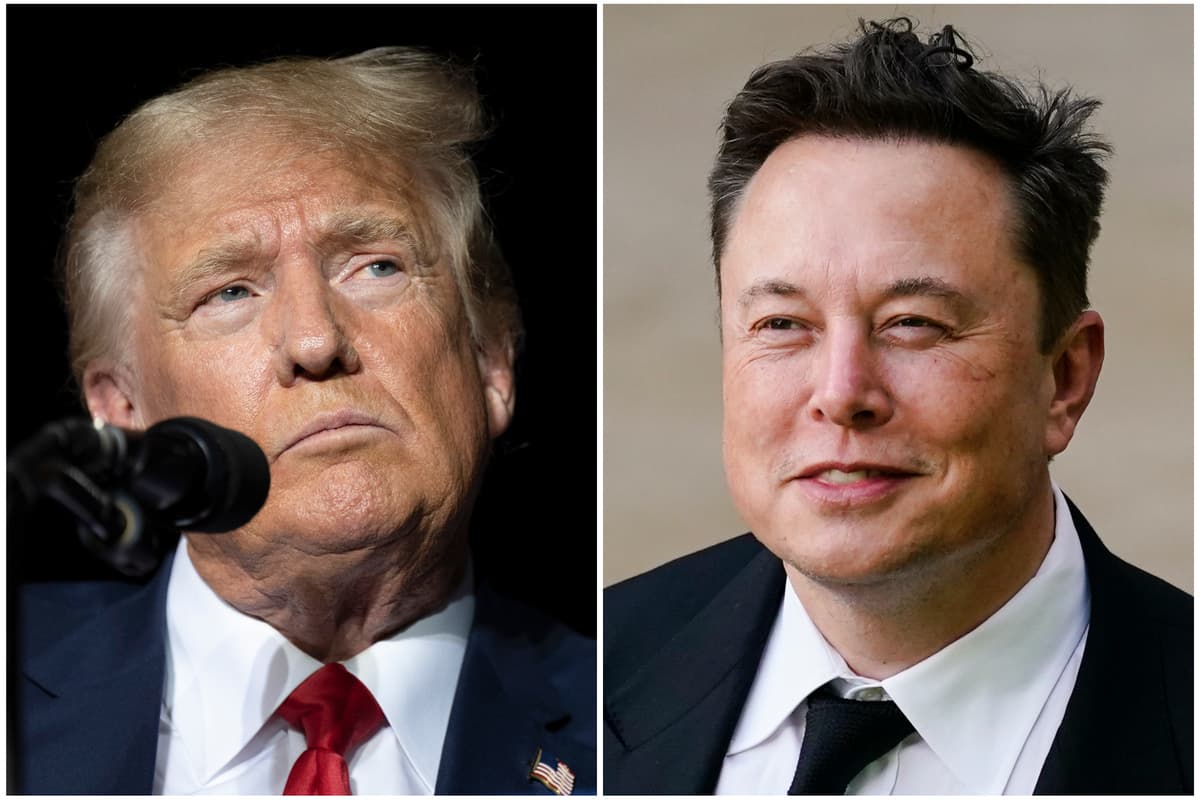Tech Titans for Trump: Elon Musk and Silicon Valley Leaders Are Backing the Pro-Freedom Candidate
Freedom of speech, freedom to innovate, and freedom from crushing government regulations and confiscatory taxes are more likely in a Trump reign than in a Harris administration.

A shocking partisan switch is underway in the stratosphere of the tech titans: The industry known for its wokeness is betting big bucks on a Republican.
Last week President Trump gave a thumbs up to the notion of teaming up with billionaire innovator Elon Musk if he wins in November. Hours later, Mr. Musk posted a message on X: “I am willing to serve.”
Elon Musk for commerce secretary? Or perhaps for the newly created position of free speech tsar?
Whether or not Mr. Musk actually joins a Trump administration — Trump himself said Sunday that the mogul is likely too busy to do so but could “consult” — his bold steps to back the Republican signal a turnaround.
Mr. Musk voted for Secretary Clinton in 2016 and President Biden in 2020. Yet last month he launched a pro-Trump super PAC, which he and several other tech moguls are funding — even though Trump would likely remove federal subsidies for electric vehicles, a major Musk industry, if he wins a second term.
Investor and “Shark Tank” star Mark Cuban called the phenomenon of tech bosses boosting Trump “insane.”
Not really: While Democrats strove mightily last week to push “freedom” as the theme of their convention, tech leaders are betting that freedom of speech, freedom to innovate, and freedom from crushing government regulations and confiscatory taxes are more likely in a Trump reign than in a Kamala Harris administration.
Among those Silicon Valley heavyweights is Nicole Shanahan, who was Robert F. Kennedy Jr.’s running mate.
“I would say that I trust the future of this country more under the leadership of Trump … than I do of the Harrises,” Ms. Shanahan said last week as Mr. Kennedy weighed his decision to back Trump in the race.
Ms. Harris’ economic plans, Ms. Shanahan warned — “particularly her flawed ideas about price caps on food” — echo “the very policies that caused the famine my family suffered through in Mao’s Communist China.”
The Republican National Committee’s platform, dictated largely by Trump himself, pledges lower taxes and deregulation, and describes innovators as national treasures.
In contrast, the Democrats’ 2024 platform vilifies businesses as greedy profiteers who don’t pay “their fair share” and proposes hiking corporate taxes to 28 percent and raising taxes on capital gains.
A Silicon Valley venture capital firm, Andreessen Horowitz, said in December that it would decide which presidential ticket to support based on one issue: “If a candidate supports an optimistic technology-enabled future, we are for them. If they want to choke off important technologies, we are against them.”
The firm called “bad government policies” the No. 1 threat to their industry.
Trump has expressed his enthusiasm for new technologies, even promising to “make America first in AI.”
By July, the investment firm’s principals, Marc Andreessen and Ben Horowitz, had changed sides and endorsed Trump, saying the Republican will reduce regulation and lower taxes.
When Trump chose running mate J.D. Vance, a venture capitalist with Silicon Valley experience, tech entrepreneurs applauded.
PayPal founder David Sacks is throwing his support to Trump and even spoke at the Republican National Convention. Palantir Technologies cofounder Joe Lonsdale and cryptocurrency kings Cameron and Tyler Winklevoss are donating to Mr. Musk’s America PAC to back Trump.
Of course, tech is an industry like any other, concerned with what government can do to damage the business environment.
Expect more tech leaders to change sides if Ms. Harris and her running mate, Governor Walz, roll out policy proposals as misguided as those we’ve seen so far, like price controls.
Big tech reacts to bad economic policies at every level, not just federal.
The same political metamorphosis bringing tech figures to Trump is also causing thousands of firms to flee California’s high taxes and overbearing regulations, and relocate to Texas. They’re trading woke for business-friendly.
Austin, the state capital, has become a tech hub dubbed Silicon Hills. Mr. Musk recently moved his company SpaceX to Texas and announced that X’s headquarters will soon follow.
Yet Mr. Musk is more than a Silicon Valley titan — he is also a crusader for free speech.
Last month he stared down a European Union bureaucrat who objected that Musk’s uncensored two-hour conversation with Trump on X could result in “disinformation.”
“Take a big step back,” Mr. Musk responded via a cheeky meme, after blasting the bureaucrat for his “alarming disregard for freedom of expression,” as a letter from several free speech groups put it.
Mr. Musk recently closed X in Brazil rather than comply with government censors there. X is suspended in Venezuela for refusing to take down posts challenging dictator Nicolas Maduro’s phony victory claims.
Ending government censorship is a top Republican priority. The Biden-Harris administration has used agencies from the FBI to the Department of Health and Human Services to pressure social media to do the administration’s bidding. The RNC platform pledges that federal interference will stop.
Mr. Musk wants “to promote the principles that made America great in the first place,” naming meritocracy and free speech among the core ideas his America PAC is pushing.
They’re not on Ms. Harris’ agenda — more reasons tech money is moving to Trump.
You don’t need AI to figure that out.
Creators.com

